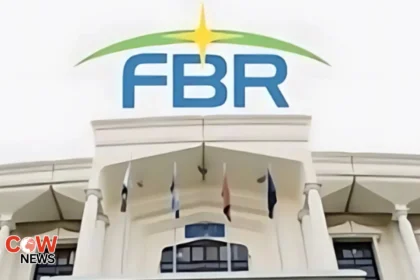Introduction
On October 16, 2024, social media was set ablaze with alarming news about Liam Payne, the former One Direction member. Rumors surfaced claiming that the singer had passed away, causing shockwaves among fans and followers of the popular boy band. The news turned out to be false, but it highlighted a critical issue surrounding celebrity culture and the responsibility that comes with reporting such sensitive information.
This article delves into the events leading to the rumor, its effects on the One Direction fandom, and the broader implications of misinformation in today’s digital age.
The Genesis of the Rumor
The rumor about Liam Payne’s alleged death began circulating on various social media platforms, primarily Twitter and TikTok. An unverified post claimed that Payne had died in an accident, and it quickly gained traction among users, leading to widespread panic and concern.
Misinformation can spread rapidly on social media, often without sufficient fact-checking or validation. In this case, many fans, unaware of the lack of credible sources, began sharing the news, further amplifying the panic. This incident underscores the urgent need for responsible sharing and consumption of information in our digital lives.
Immediate Reactions from Fans
The immediate aftermath of the rumor was a tidal wave of emotions among fans. Social media platforms became a hub of activity, with many fans expressing their shock and grief. Posts filled with heartfelt messages, prayers, and memories of Payne and his contributions to music flooded timelines. The hashtag #RIPLiamPayne trended on Twitter, illustrating how deeply the news resonated with the One Direction fandom.
One fan tweeted, “I can’t believe this is happening. Liam has always been there for us through his music. This can’t be true!” Another shared a collage of memorable moments from Payne’s career, captioning it, “Thank you for the memories, Liam. You mean the world to us.”
These responses reflect how deeply connected fans feel to their idols, and how the thought of losing someone they admire can evoke a strong emotional reaction.
The Psychological Impact of Misinformation
The emotional toll of such rumors can be significant. Fans invest not only their time but also their emotions into their favorite celebrities. The fear of losing someone they look up to can lead to feelings of anxiety, depression, and grief.
According to mental health experts, the phenomenon of “celebrity grief” can be just as impactful as the loss of a personal acquaintance. Dr. Sarah Johnson, a psychologist specializing in celebrity culture, explains, “When we form emotional attachments to public figures, we often feel as though we know them personally. Rumors of their death can lead to intense feelings of loss and sorrow, even if untrue.”
Furthermore, the rapid spread of misinformation can exacerbate these feelings. As fans seek reassurance, the lack of accurate information can lead to confusion and distress. The need for immediate clarification becomes essential, yet in a digital landscape, this can often be overlooked.
The Role of Media and Celebrity Culture
The entertainment industry plays a pivotal role in shaping how news about celebrities is disseminated and consumed. Sensationalism often takes precedence over accuracy, leading to headlines designed to grab attention rather than inform. In the case of Liam Payne, the rush to report his supposed death highlights a concerning trend in media practices.
The Importance of Responsible Reporting
Media outlets, whether traditional or digital, have a responsibility to ensure that the information they publish is accurate and verified. In an age where misinformation spreads rapidly, the role of journalists and content creators becomes even more critical.
Experts argue for the need to prioritize fact-checking over sensationalism. “In today’s world, the truth can often be overshadowed by the need for clicks and views,” says media analyst Lisa Tran. “It’s essential for outlets to establish credibility by committing to responsible journalism.”
The case of Liam Payne serves as a reminder of the potential consequences of irresponsible reporting. Not only can it mislead fans, but it can also damage the reputation of the celebrities involved.
The Response from Liam Payne and One Direction
As the rumors escalated, Liam Payne and his representatives took to social media to address the situation. A heartfelt post from Payne himself reassured fans that he was alive and well. He expressed gratitude for the outpouring of love and support he received during the turbulent time.
“Hey everyone, I’m here and okay! Thank you all for your love and concern. It means the world to me. Let’s focus on the good and spread positivity,” he wrote, easing the worries of his fans.
This response highlights the importance of communication in times of crisis. By addressing the rumors directly, Payne not only calmed the fears of his fans but also reaffirmed his connection to them.
The Repercussions on Social Media
The aftermath of the rumor saw a surge in discussions about the responsibility of social media users in disseminating information. Many fans began sharing articles emphasizing the importance of verifying sources before spreading news.
“I think we need to be more mindful about what we share. It’s not just about us; it affects real people,” one fan commented on a post addressing the situation.
This collective reflection demonstrates a shift in awareness among fans and followers regarding the implications of their online behavior.
Celebrity Responsibility and Fan Engagement
As celebrities navigate the complexities of fame and public scrutiny, they also bear a responsibility to their fans. Engaging with their audience authentically can help build trust and mitigate the effects of misinformation.
Liam Payne’s proactive approach in addressing the rumor is an excellent example of how celebrities can use their platforms positively. By communicating openly, they can strengthen the bond with their audience and provide reassurance in times of uncertainty.
The Need for Community Support
In the wake of such rumors, the sense of community within fan bases becomes crucial. Many fans found solace in connecting with others who shared their feelings of fear and anxiety. Social media platforms serve as a space for collective healing and support during distressing times.
Fan pages, forums, and groups became venues for discussing their thoughts and feelings about the rumor. Supportive messages and shared experiences helped fans cope with the emotional aftermath, highlighting the importance of community in navigating the challenges of celebrity culture.
The false rumors surrounding Liam Payne’s death served as a stark reminder of the responsibilities that come with celebrity status and media reporting. The emotional impact on fans underscores the need for careful consideration when sharing information online.
As society continues to grapple with the rapid spread of misinformation, it is imperative for both media outlets and individuals to prioritize truth and compassion. The One Direction fandom’s response illustrates the deep connections formed through music and the impact of shared experiences.
Ultimately, open communication, community support, and responsible reporting can help mitigate the effects of misinformation in the digital age. As fans continue to rally around their beloved artists, the importance of truth and transparency remains paramount.
#LiamPayne #OneDirection #Misinformation #CelebrityCulture #MentalHealth #SocialMediaResponsibility #FanCommunity #MusicIndustry







